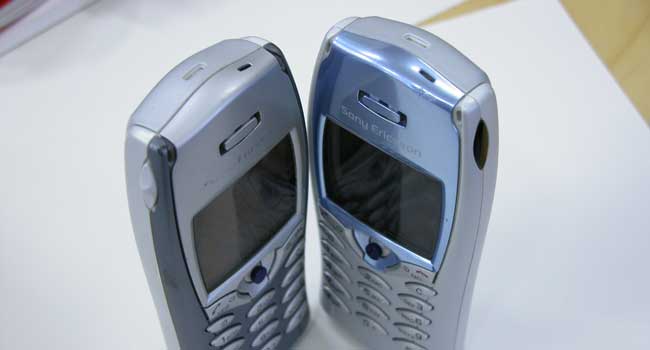 Technology was supposed to simplify our lives, wasn’t it? In so many ways it does, of course, but then we seem to feel the need to complicate things again, as if to compensate.
Technology was supposed to simplify our lives, wasn’t it? In so many ways it does, of course, but then we seem to feel the need to complicate things again, as if to compensate.
Here’s an example: arranging to meet up with a friend. What used to be accomplished in a single phone call now takes five calls, seventeen texts and a barrage of emails. Because we have the tools in our hands, we feel the need to use them. I’ll illustrate what I mean with a quick case study. Let me know if any of it sounds familiar.
Meeting a friend, circa 1998
A: Hi B, haven’t seen you for ages, want to meet up for a drink on Friday night?
B: Sure, that’d be great. How about McSorley’s Bar at seven o’clock?
A: Perfect, see you there!
A and B live their own lives for a few days, then meet up at McSorley’s Bar at seven o’clock on Friday night.
Meeting a friend in 2012
Part one: Tuesday evening
A: Hi B, haven’t seen you for ages, want to meet up for a drink on Friday night?
B: Sure, that’d be great. Let’s talk nearer the time to confirm.
A: Perfect, talk to you later!
Part two: Wednesday lunchtime
B: Listen, C is having a party on Friday night and I’d like to go along for a couple of hours. Maybe we could both go, and then head to a bar afterwards?
A: Sure, that’d be great. Let’s talk nearer the time to confirm.
Part three: Wednesday afternoon (via text)
A: Is it OK to bring D to party? Would C mind?
B: No problem! Maybe the 3 of us cld meet up b4 the party?
A: Grt! Will confirm nearer the time.
Part four: Thursday morning (via email)
B: C’s party cancelled ? Let’s just meet at the bar after all.
A: Ah, shame. D said he can’t make it anyway, so it’s just the two of us. Where do you want to meet?
B: Somewhere central I think. Let’s talk nearer the time to confirm.
Part five: Thursday evening (via text)
B: Work looking busy, not sure what time I can get out tomorrow
A: Me too, let’s see how it goes…
Part six: Friday afternoon (via text)
A: I can get out around 6, how abt u?
B: Is 7 OK?
A: Sure, will call when I’m leaving.
Part six: Friday at 6pm
A: Hi B, I’m leaving now, how’s it going?
B: Pretty busy, but I should be able to get out on time. Let’s meet at McSorley’s.
A: OK, around seven then?
B: Yeah, that should be OK.
Part seven: Friday at 6:45pm (via text)
A: Just stepped out of the Tube, there soon
[no reply]
Part eight: Friday at 6:55pm (via text)
A: I’m there
[no reply]
Part nine: Friday at 7:01pm
A: Hi, where are you?
B: Sorry, running a bit late. I should be able to get out in ten minutes or so. Why don’t we meet somewhere closer to my office, so you don’t have to wait so long?
A: OK, I’ll head in that direction, and call you so we can sort out a place to meet.
Part ten: Friday at 7:30pm
A: Hi, just got off the bus near your office. You almost ready?
B: Didn’t you get my text? I left already, tried to call you but you didn’t pick up. I’m heading towards Covent Garden. Maybe we could try that new place?
A: OK, I’ll see you there in ten minutes or so.
Part eleven: Friday at 7:45pm
B: Listen this new place is shit. Can you think of anywhere else around here?
A: No, it’s all so touristy. Why don’t we go to McSorley’s?
B: OK, I’ll see you there.
A and B finally meet at McSorley’s just after eight. They have some drinks together but don’t talk much, because they’re both busy texting back and forth all night with C and D, who’d said they might come along, but never turn up in the end. Still, it doesn’t matter, because A and B already said everything they have to say to each other on Twitter earlier in the week.
Does this scenario sound at all familiar?
I thought at first that this “Let’s talk nearer the time to confirm” thing was just age – in 1998 I was 21 years old and could easily make plans, and now I’m 35 and a lot of my friends are juggling corporate jobs and families and so on.
But I’ve also noticed it with younger people – in fact I’d say it’s even worse with younger people, who often seem chronically unable to commit to a meeting. It doesn’t seem to be about how busy people are, but about the technology they use.
You see, I think that our habits are being affected by the tools in our hands. It’s not surprising – we’ve been affected by every other tool we use, from the flint axe to the printing press. Now our constant connectedness has made us complicate the simplest things. In the old days, we had no choice but to fix a time and stick to it. Mobile phones were a wonderful innovation, allowing us to call and rearrange if something unavoidable happened. Now, though, we’ve got used to having the luxury of postponing decisions, waiting to see what happens, juggling different options and picking the best one. That’s what makes one phone call turn into fifteen.
What do you think? Have you noticed the same change? Is it technology, or something else? Let me know in the comments below.
And just for the record, if you’re ever meeting me, you don’t need to call and confirm nearer the time, or send me emails and text messages checking if the date still works for me. Just go to McSorley’s Bar at seven o’clock. I’ll be there.




There are 22 comments
Yes, I can totally relate. The ‘let’s confirm nearer’ thing just keeps everything up in the air and the en route updates are just annoying. I do like the ‘I’m here, where are you’ though because that can save a lot of confusion in a crowded bar. I suggest you become the cantankerous one who always has his phone switched off to save further irritation – on your part!
Cantankerous? Moi? 😉
I agree, the ‘I’m here, where are you’ is quite useful. In fact there are lots of useful things that mobile phones do. I think overall they’re a good addition to my life – it’s just that the way we use them sometimes defies logic (and I don’t exempt myself from that!). Thanks for stopping by, Fiona!
Technology has changes us in so many ways. The example that you pointed out above is so very true to life.
It really is a mixed bag. Some of the change has really been beneficial. For example, the ability to connect instantly with people all over the world.
On the other hand the unnecessary and silly complications that you point out are really not a good thing.
Even when I think about the benefits, I do not think that all this has simplified anybody’s life.
You’re right, Brian, there are so many benefits, and yet our lives don’t become simpler.
It reminds me of something I read years ago about how attempts to make a particular road safer by improving lighting and signage, etc., failed because people just drove faster to compensate. They posited that there was an overall “safety threshold” that we need to feel, a balance between safety and risk that feels right to us, and if things are done to make us safer, we just ratchet up the risk in other ways.
I wonder if there’s a “complication threshold”, and things that should simplify our lives end up just making us complicate matters unnecessarily to even things out!
I’m somewhere in between. The traffic here is horrendous and when I meet with people it can take from 1 hour (I wish!) to 2 (almost!), so I do text a bit to let them know I’m on my way. It is stressful though, so I’ll usually just say: “call you when I get there”.
Sometimes technology complicates things, I agree.
Wow, that’s a lot of traffic, Delia! Must be stressful. I agree that a quick text or call is useful in such situations. It’s just when it goes beyond that and becomes a whole string of miscommunication and changed plans that it starts to irritate me.
Bang on Andrew. It’s a fact of modern life that kit can keep us more, and better, informed but none the wiser.
Ah, that’s a good way of putting it, Barry – better informed but none the wiser. I wish I’d thought of that when I was writing the post!
Several emails or texts and it’s so much worse when it’s a group of friends from the word go. In a way it helps to have the technology, say if you’re ill and the person has likely left already, you’ll catch them with a text but not a house phone call. But it has definitely made a mess of arranging, because it’s so easy to keep texting. I’ve found in some cases it’s best to set an earlier time than wanted, for both myself and the other person. Texting to say you’re late instead of ringing whilst walking takes time after all.
Hi Charlie,
Oh, don’t get me started on groups of friends arranging to meet, and all the “Reply all” emails that just go round and round with different dates and times and places and nobody making a decision! You’re right, the technology helps in a lot of ways, like with last-minute emergencies. But we must always take it further…
I found this hilarious! It’s my life! Have you been peeking on the CCTV again? 😉
Of course! Big Brother is watching from Barbados. Nice shoes, by the way.
So funny, Andrew.
The technology just erased the need to proper planning. I’m still old-fashioned, I tend to be at McSorley’s Bar at seven o’clock on the right day and without a reminder.
It’s strange that you write about this now, I thought about that last week. I had a meeting with a friend who was there, as scheduled more than a week before. I thought I enjoy meeting her because she never changes our plans unless it’s unavoidable.
In the end, what you describe in the second sketch is rude. People think others are at their disposal and that, because they can reach them and say they won’t make it, they are not guilty of changing plans at the last minute. But friendship means respect and for me, this is all disrespectful and unkind. Why would I have to adjust to someone else’s schedule? Do I mean so little to them that they can change their minds lilke a weathercock and think I won’t mind?
Hi Emma
I completely agree, it always strikes me as rude and disrespectful. It’s saying that other things come first, whether it’s other people or work or their own mood, and I have to be messed around. I prefer it when the meeting is the thing that’s fixed, and if anything else “comes up”, the person just says “Sorry, I can’t do it, I have to meet Andrew at seven o’clock.”
It’s good to hear you’re old-fashioned too!
In 1998, I was 12. Owning a mobile phone wouldn’t happen for me until I’d become 17, and it took ages for my household, stuck in the middle of a dodgy reception area in hilly semi-rural Trinidad, to get decent, non-staticky internet. What’s most telling for me about this incisive post of yours, Andrew, are those panicked pauses that the [no reply] status can elicit. It scarcely seems to matter if you’ve heard from your friend not five minutes ago — your brain sends these adrenalin feelers of fear, wondering “Why hasn’t he responded? Why hasn’t he responded right this second?”
We’re perpetually perched on the edge of instant gratification, or its hope. It occurs to me that a short story collection of pieces framed beneath this consideration would make for a fascinating read, if handled well. Thank you very much for bringing that thought to mind!
Hi Shivanee
I think you’re right about that need for instant gratification. Again, the technology has given us access to things we never dreamt of before, and if we don’t get it right now, we get antsy. Even if it’s not important, and even if there are a thousand perfectly logical reasons why the person can’t reply, we still want a reply. NOW!
Funny because it’s so true. For most of my friends anyway. As for me, while I do enjoy technology, I’m not as glued to it as others are. I rarely check my phone and often leave it at home (by accident, I keep forgetting about it). My husband gets annoyed because often he would call me when I’m out and he never can reach me as I left the phone at home. Or I do bring the phone it’s stuck in my bag and I don’t answer. I don’t know why it always reverts to mute or vibrate by itself, it must know I don’t like using it ha ha. Friends text me and I don’t see it for days, even on email. I don’t mean to be rude, I just don’t see the need to keep checking all the time. I just feel like it’s a burden if I do, so I don’t think about it. I check when I remember. I know this might seem annoying to some, not replying immediately, for example, but I can’t help it, I’m just not that immersed in technology. I have never even had the urge to go on Twitter, despite being the last person not on it, probably. For me, less technology, less mind clutter. Simple is the way to go.
Oh my God, you’re not on Twitter? 😮
Actually I’m very similar to you – always leaving the phone at home, always leaving it switched off, never picking it up in time. There’s something about constant contact that feels oppressive to me. As you say, it’s not about being rude or not wanting to hear from friends or family. It’s just that I don’t need to hear RIGHT NOW!
It’s very interesting to me that these things are supposed to make life simpler, and theoretically they should, but I can’t help agreeing with you that “less technology, less mind clutter”. Technology has given me so much, like the ability to have this conversation with you when I’m in Barbados and you’re in Canada, like the ability to meet you and all the other readers of this blog in the first place. But make life simpler? Certainly not.
Oh, very funny Andrew … particularly the end where they finally get there and spend more time texting that talking. Being a little older, I don’t get quite so caught up in what you describe here but it does happen. I’m certainly aware of the confirm later thing happening more and more. However, I do love the way mobile phones make it easier to meet people in big venues like writers festivals for example. A session runs overtime. No problem, just text and explain. No anxiety about whether to leave the other person waiting and wondering or to irritate your neighbours and insult a speaker by leaving before the end!
Ah, so YOU’re the person who’s busy texting while a poor writer is trying to hold his audience. Just kidding! I agree, they can be very helpful in situations like that. The confirming later thing drives me mad, though. Well, I guess that came across…
Loved your post, Andrew! I totally agree! I used to love the mobile phone, but now I hate it. Flexibility is good in principle but now that technology has enabled it, it doesn’t look like a nice thing at all. When I read your post, I remembered a similar conversation that I had with a friend a few months back – we didn’t get to meet finally. Sometimes I wish for the old days 🙂
Yes, we seem to take the flexibility too far sometimes, don’t we? It should be a great thing, and in certain circumstances it’s very useful, as some of the commenters have pointed out. But often we end up just making things more complicated than they need to be. Sometimes I wish for the old days too!